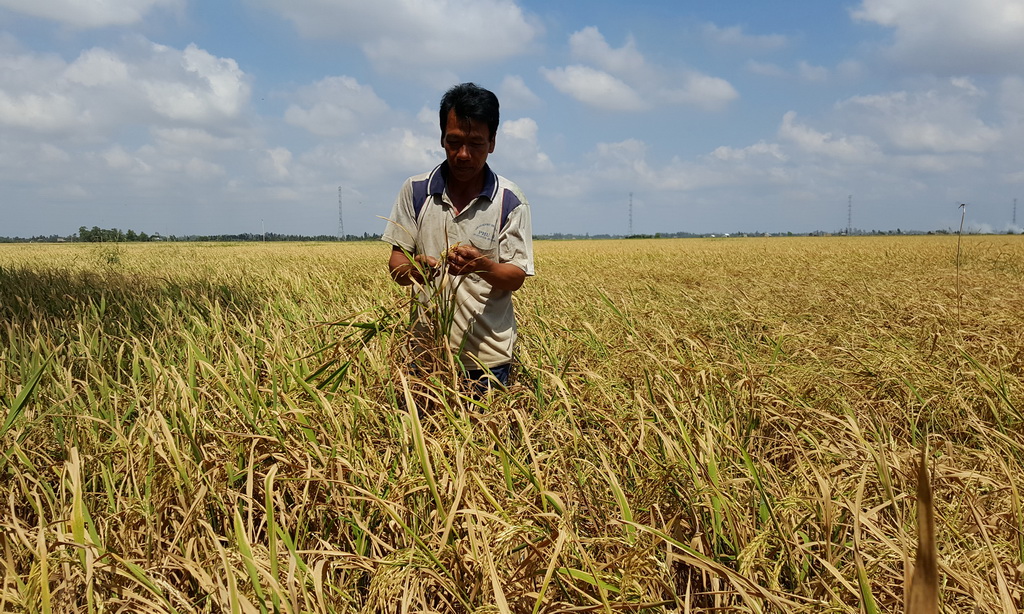Vietnam’s Mekong Delta is facing the most severe drought and salinization in nearly a century, according to the Ministry of Agriculture and Rural Development.
The serious conditions have occurred only once in the last 90 years, the ministry said at the conference in Can Tho City on Wednesday.
Prompt and assertive measures must be applied in order to prevent the heavy damage brought about by drought and salinization in order to ensure the lives and production of local citizens, Deputy Prime Minister Nguyen Xuan Phuc remarked at the meeting.
The deputy premier ordered competent authorities to prioritize a financial support plan for the localities in the delta for speedy approval by the prime minister.
Vietnam’s Mekong Delta is being directly and significantly affected by climate change, Deputy PM Phuc said.
He requested that the Ministry of Agriculture and Rural Development cooperate with the Ministry of Science and Technology and the Ministry of Natural Resources and Environment to carry out research and identify coping methods for the situation.
The official also mentioned possible solutions to harsh climatic conditions, including re-zoning farming areas, ensuring water supply for crops and cattle, researching and developing crops with high salt tolerance, and others.
Though drought and salinization are not unprecedented in the Mekong Delta, short-term and long-term measures should be prepared to cope with the elevated situation and protect the lives of nearly 20 million people in the region, said Nguyen Phong Quang, an official from the Southwest Steering Committee.
He suggested that local authorities only focus on constructing dams in essential areas to protect them from the salinization due to a limited budget.
“I was born and raised in Kien Giang Province. This is the first time I have ever observed such extreme drought and salinization,” said Mai Anh Nhin, vice chairman of the provincial People’s Committee.
Nhin added that local officials have briefed the farmers on the situation and will establish a suitable crop calendar.
The Ministry of Agriculture and Rural Development said that it has already ordered specialized agencies to provide technical support in the building of temporary dams and water reservoirs.
The Vietnam Academy of Agricultural Sciences has been asked to inform farmers in the localities of a specific time to plant their crops, said Cao Duc Phat, Minister of Agriculture and Rural Development.
About 971,200 hectares of farming area in eight provinces of the Mekong Delta has been affected by salt water, Le Quoc Doanh, Deputy Minister of Agriculture and Rural Development, said.
This year’s severe drought and salinization happened due to the decline of water flow from major rivers into the area, the National Center for Hydro-meteorological Forecasting explained.
The Southern Institute of Water Resources Research predicted that water in some areas will be completely impacted by salinization between March and May, resulting in an absence of fresh water during the dry season.
Like us on Facebook or follow us on Twitter to get the latest news about Vietnam!




















































